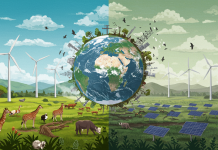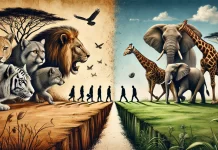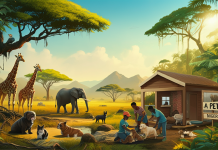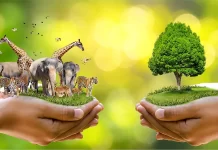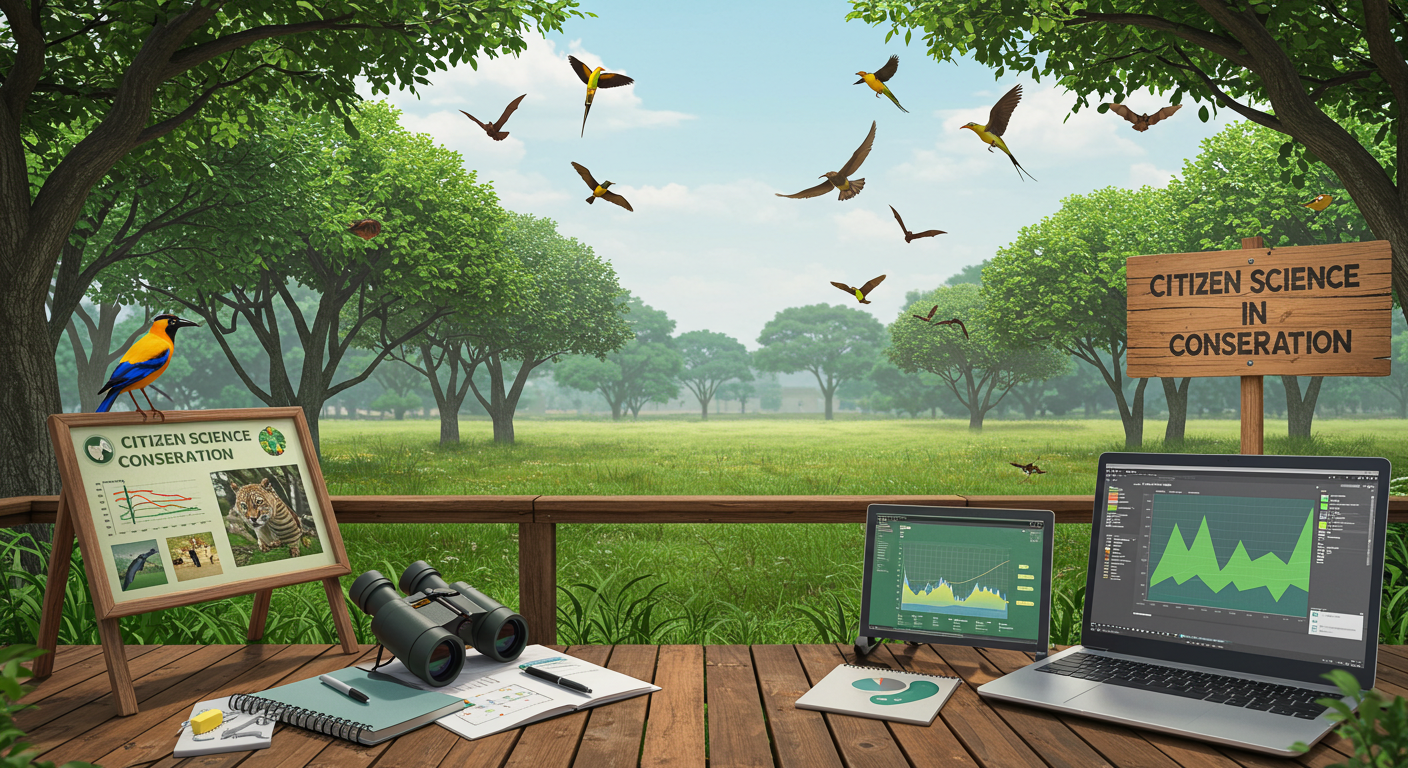A two-day event in Abuja recently showcased the power of citizen science in conservation efforts, bringing together scientists, policymakers, and conservation agencies. The event, led by the Tropical Biology Association (TBA) in partnership with the Nigeria Bird Atlas Project (NiBAP), highlighted how data collected by everyday citizens can influence conservation policies and environmental management.
What Is The Role of Citizen Science in Conservation?
Citizen science involves ordinary people contributing to scientific research by recording and sharing observations of nature. This approach helps scientists and policymakers understand environmental trends, identify conservation priorities, and take action based on real-time data. The event in Abuja focused on the importance of citizen science in monitoring wildlife species such as birds, bats, and butterflies.
According to Anthony Kuria, the principal investigator for the TBA-led project “Improved Decision-making through Citizen Science Data,” citizen science is already proving useful in Nigeria. He noted that early observations from Amurum Forest Reserve in Jos Plateau are helping researchers track biodiversity trends and conservation needs.
Several experts presented research on how citizen science is shaping conservation efforts in Nigeria.
Bello Danmallam, a data analyst with NiBAP, discussed the effectiveness of protected areas in conserving bird populations amid rapid urbanization. He compared bird distribution data from Kenya (1970-2023) to highlight how human activities impact biodiversity. Kuria added that similar long-term monitoring efforts in Nigeria could guide conservation decisions.
Another key presentation came from Oluchi Agodi of the Small Mammals Conservation Organisation, who shared insights on the acoustic monitoring of straw-colored fruit bats—a near-threatened species. She emphasized the importance of technology in collecting data on these bats, which play a crucial role in pollination and seed dispersal.
Butterflies were also part of the discussion, with experts noting that their movements and population changes can signal environmental shifts. Monitoring their activity helps conservationists identify areas in need of protection.
Connecting Conservation with Policy and Society
The event also explored how citizen science can be integrated into policy and community development. Hope Usieta of the Leventis Foundation (Nigeria) highlighted the link between sustainable agriculture and biodiversity, emphasizing that farming and conservation can benefit people and nature.
Iniunam Iniunam, a data analyst with NiBAP, spoke about Nigeria’s rich birdlife, stressing the importance of using citizen science data to drive conservation strategies. The event encouraged deeper collaboration between scientists and policymakers to ensure that data from citizen scientists is effectively used for decision-making.
One of the significant outcomes of the event was the interest shown by the Livestock Development Department in partnering with NiBAP for disease surveillance. This demonstrates how conservation data can have broader applications beyond biodiversity, influencing agriculture and public health.
Challenges and Opportunities
Despite the progress in citizen science, experts acknowledged challenges such as limited public awareness, lack of funding, and the need for stronger partnerships. They emphasized making citizen science more accessible, mainly through education.
One proposed solution was to introduce school conservation education, encouraging young people to engage in environmental monitoring. Another priority was training park rangers in citizen science methods, allowing them to collect valuable data while protecting wildlife.
Additionally, integrating nature into urban planning was identified as a key area for future work, ensuring that cities grow to support biodiversity rather than harm it.
Moving Forward
As the event concluded, Dr. Talatu Tende, the manager of NiBAP, expressed optimism about the connections and discussions. She emphasized that collaboration between scientists, policymakers, and local communities will be essential for the success of citizen science in Nigeria.
TBA’s Anthony Kuria described the gathering as a strong example of how the Darwin Initiative-funded project bridges the gap between science and policy. He noted that citizen science is not just a tool for research—it is a powerful driver of change.
By engaging the public in conservation efforts, Nigeria is paving the way for a more sustainable future where environmental decisions are guided by data collected by the people to benefit both nature and society.

